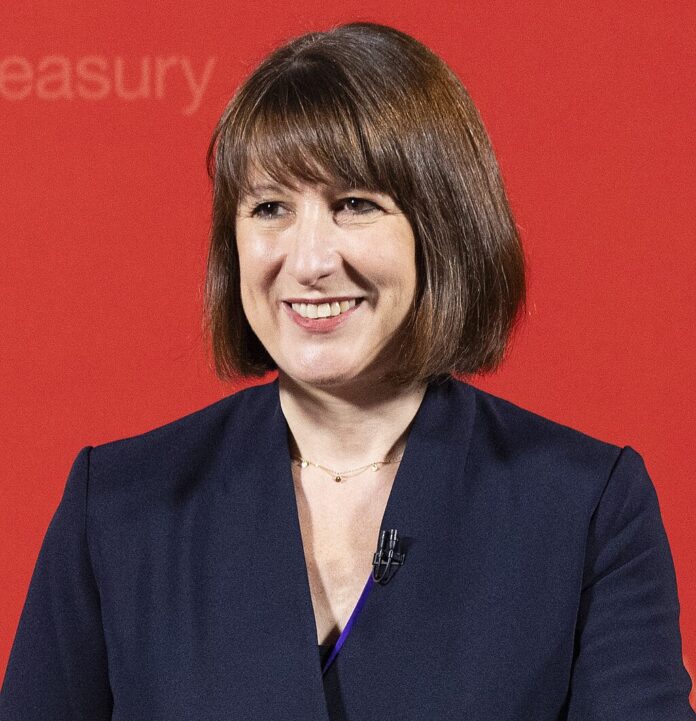The upcoming budget is set to reflect a rigorous approach to fiscal policy, contrasting sharply with previous administrations
As Rachel Reeves prepares to make history by becoming the first woman to present the UK Budget outside Number 11, expectations are set for a pragmatic rather than a theatrical affair. According to Faisal Islam, economics editor for a leading news outlet, there will be no elaborate red box, no grandstanding, and certainly no rabbits pulled from hats. Instead, the upcoming budget is anticipated to be a product of careful number crunching, steering clear of the political flamboyance associated with previous fiscal events.
Reeves’ Budget marks a stark contrast to the infamous mini-Budget delivered by Liz Truss and her chancellor, Kwasi Kwarteng, two years ago. Truss’s government famously rejected the Office of Budget Responsibility’s (OBR) forecasts, dismissing them as part of a supposed “deep state” conspiracy. This time, however, the OBR has conducted a thorough audit of the public finances and the proposed tax and spend measures, reflecting a significant shift towards a more responsible and calculated fiscal approach.
The backdrop to this Budget is one of lingering uncertainty and diminished consumer and business confidence. Business leaders are reportedly open to the idea of tax increases but warn that prolonged uncertainty could stifle economic recovery. Some critics suggest that the government missed a pivotal opportunity to implement substantial reforms during a summer marked by stabilising interest rates and a new administration.
Embed from Getty ImagesReeves’ Budget is poised to align with a global economic shift. The era of elevated government spending and borrowing, coupled with high-interest rates designed to combat rampant inflation, is giving way to a new normal characterised by tighter fiscal policies and lower borrowing. The expected tax rises will be wide-ranging, with the increase in employers’ National Insurance Contributions (NICs) being the most prominent among them.
Interestingly, internal discussions had suggested a reversal of the Conservatives’ previous 2% cut to employee NICs. However, Reeves has maintained her commitment not to breach Labour’s manifesto pledge against raising employee NICs, leading to a potential dispute over whether raising employer NICs constitutes a breach of this promise. Labour insiders assert that the language in their manifesto was deliberately crafted to permit increases in employer NICs, a point they believe has been overlooked by critics.
THE TELEGRAPH
As Rachel Reeves prepares to unveil her first budget, the spectre of Liz Truss’s economic chaos looms large. The former Tory leader’s infamous mini-budget sent shockwaves through the financial markets, leading to her rapid political downfall. Now, as Reeves steps into the fiscal spotlight, speculation abounds about her planned tax moves and their potential implications for households and businesses alike.
While the discourse surrounding Reeves’s budget has been dominated by predictions and counter-predictions, one point remains clear: the size of the British state has reached unsustainable levels. Government spending as a share of GDP hit a staggering 44.7% in the 2023-24 fiscal year, far exceeding the long-term average of around 40%. With Reeves’s upcoming budget expected to push this figure even higher, concerns about fiscal responsibility are mounting.
Currently, the UK’s tax burden stands at 36.9% of GDP, marking a 70-year high. As Reeves prepares to announce what she describes as a “tough” budget, analysts are warning that this figure is poised to rise further, creating a widening chasm between tax revenues and expenditure that will necessitate increased borrowing.
The implications of high government spending and the resulting need for borrowing are profound. The UK government has historically relied on the issuance of gilts—government bonds bought by institutional investors—to finance its operations. In the late 1990s, the annual issuance was a manageable £10bn to £20bn. However, as spending escalated, particularly under Gordon Brown’s tenure, this figure swelled to £50bn to £60bn annually. The situation escalated dramatically following the 2008-09 global financial crisis, where gilt issuance reached an unprecedented £228bn.
The fiscal challenges have not abated in the years since. In the wake of the COVID-19 pandemic, government spending surged to an eye-watering 57% of GDP, driven by emergency measures like the furlough scheme. Despite the gradual recovery from lockdown, government borrowing remains alarmingly high, with forecasts suggesting that gilt issuance could reach £278bn in 2024/25.
SKY NEWS
In a significant speech ahead of Wednesday’s budget announcement, Prime Minister Sir Keir Starmer is set to acknowledge the tough economic landscape facing the UK, stating that the Labour government’s first budget will embrace the “harsh light of fiscal reality.” As the nation grapples with unprecedented economic challenges, Starmer emphasises that despite the current difficulties, “better days are ahead.”
Starmer’s address, which aims to set the tone for Chancellor Rachel Reeves’s upcoming budget, will highlight the need to confront long-term issues that have been overlooked for the past fourteen years. He plans to assert that the government’s fiscal strategy is designed to change the trajectory of British economic growth for the better.
Among the key changes expected in the budget are an increase in employer national insurance contributions by at least one percentage point and the elimination of tax exemptions for private schools. These measures aim to raise additional revenue in light of the UK’s pressing fiscal situation.
Labour’s manifesto had promised not to increase taxes on “working people,” which has led to scrutiny over the potential implications of these new policies. While the party has ruled out increases in VAT, national insurance, and income tax, critics have pointed to a perceived inconsistency in the decision to extend a freeze on income tax thresholds. This freeze effectively means that more individuals could find themselves paying a higher proportion of their income in taxes as inflation rises.
Further complicating matters, ministers have faced pressure to clarify the definition of “working people” in light of Starmer’s recent comments suggesting that individuals who generate income from assets, such as property, may not fall under this category. This has raised questions about the fairness and transparency of the government’s tax policies.
